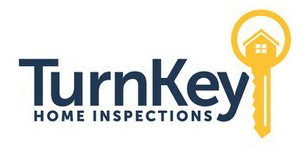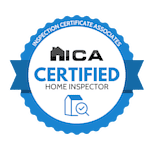Our Services
Our home inspections are performed with great care and attention to detail.
Buyers Inspections
Our buyer’s home inspections are completely comprehensive. We will accompany you through a walkthrough and inspection of the home you’re interested in buying, and assess its condition using our multi-point home inspection checklist. Our buyer’s home inspections include a comprehensive report noting all issues and unlimited follow-ups and support from your home inspector.
Pre-Listing Inspections
A pre-listing inspection can not only help expedite the selling process, but potentially even increase the property’s sale price. Additionally, they can help reduce the chances of a sale falling through due to unexpected issues with the property being discovered during the negotiation or buyer’s inspection.
New Construction Inspections
Newly constructed homes need an objective third-party to inspect. The city or county inspectors often don’t catch everything, but we’ve been trained to have a keen eye for anything that could compromise a new home’s lifetime or safety.
Pool, Spa and Hot Tub Inspections
A pool inspection is one of the most important steps in owning a swimming pool. We are licensed and insured to inspect residential swimming pools and spas, and water features such as fountains and whirlpool tubs.
Radon Testing
Radon is the 2nd leading cause of lung cancer in the US. Radon is a natural, radioactive, invisible, and odorless gas that is produced when uranium in the Earth’s crust decays and turns into radium. Make sure you and your family are protected by getting your property inspected.
Mold Inspection
There are over 400,000 types of mold, and while there are only a few dozen that are toxic, exposure to many molds can lead to health problems. It can also cause structural damage to your house. Don’t hesitate! Even if you don’t see mold, a full assessment can help you determine if fungal spores are growing in your home!
Termite Inspection
Termites can go unnoticed until they cause catastrophic damage to your home. Whether you’re shopping for a home and suspect a termite issue, or you think your current home may be affected by termites, we can provide you with comprehensive testing, and help you understand your options for termite remediation if we do discover an infestation.
Sewer Line Camera Inspections
A broken or damaged sewer system costs homeowners thousands of dollars to fix. If you want to avoid costly repairs down the road, it’s important to find out about potential problems early on. An inspection of a house’s plumbing system lets you know if there are any major issues before buying a home, so you don’t end up paying for repairs later.
Frequently Asked Questions
Buying or selling a home can be a stressful experience, but we’re here to ensure you know what to expect during your home inspection.
A home inspection includes checking for any structural issues such as foundation cracks, roof leaks, plumbing issues, electrical wiring, heating/cooling systems, insulation, windows, doors, chimneys, etc. Depending on how big the property is, a home inspection typically takes 2-3 hours.
Ensure all inspection points are free from clutter, including any closets that might lead to a crawlspace or attic, and clearing some space around your home’s perimeter. It’s also important to check the functionality of all built-in appliances, electric, and gas. If you don’t plan to attend the inspection, make sure your inspector has access to the home, and all pets are properly contained or moved.
A home doesn’t pass or fail an inspection. Instead, a home inspection is a thorough audit of your home’s components. In most cases, there will be concerns marked on your home inspection report, but these are strictly informative.
While you can legally skip a home inspection in many cases, doing so could mean you may end up buying a home that has major issues that need to be fixed.
While a home inspector may recommend some minor repairs, they are not qualified to make major repairs. He or she can provide information about what needs to be repaired — and it might be helpful to know that information — but the decision to actually do the work lies solely with the homeowner. Not only does this you the freedom to choose your contractors, but it also helps prevent a conflict of interest.
A home inspection can affect appraisals for two reasons: 1) The inspector may find something wrong with the property that would lower the value of the home, 2) The inspector may find things that need repair which could increase the value of the home. If the inspection finds issues that require repairs, then the seller has to decide whether they want to fix them themselves, or hire someone else to do it. If the buyer wants to purchase the home, he/she must be willing to pay for those repairs.


